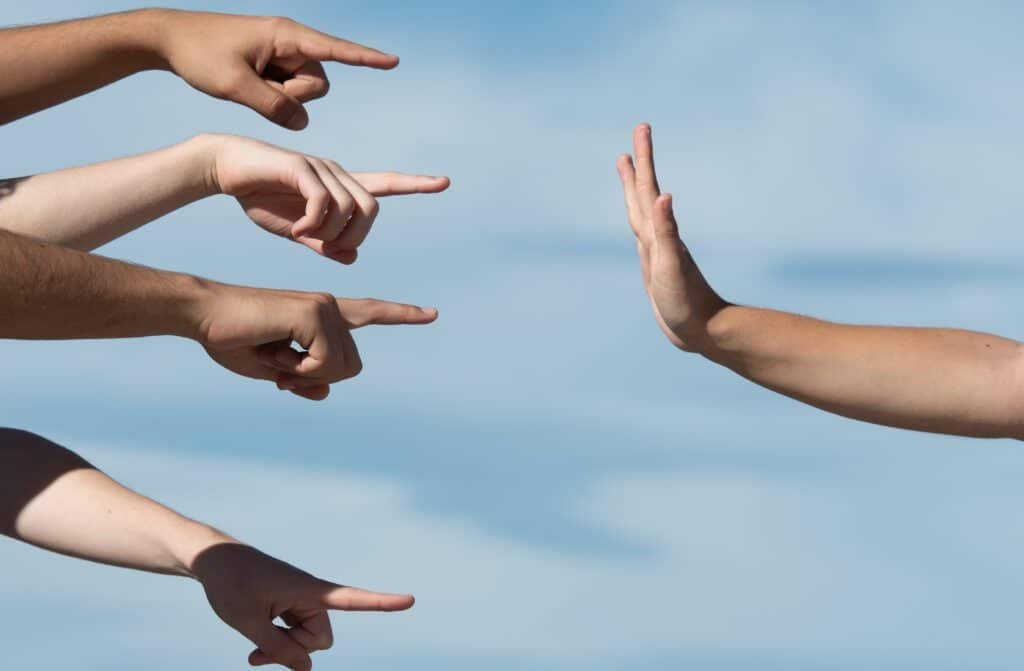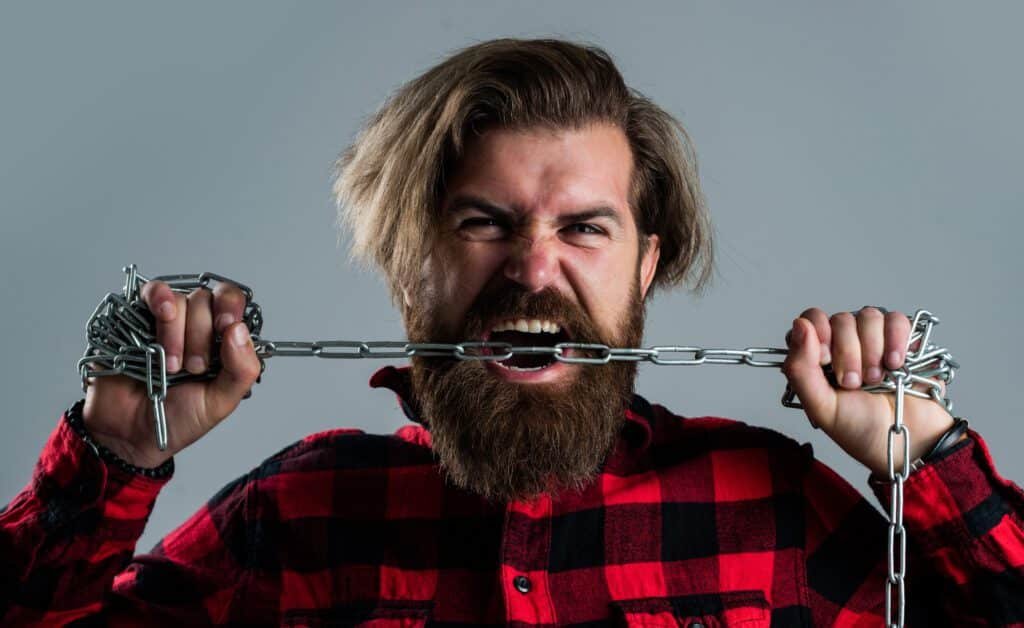Mayo Clinic Says Domestic Violence Against Men Can Be A Serious Threat
Men are “invisible victims” of domestic violence according to Mayo Clinic, No. 1 “Best Hospital” nationwide in the United States.

We all know that domestic violence is a big issue in our society. But how many of us know that this affects men too?
Hollywood, domestic violence advocates, and websites will lead you to believe that domestic abuse is something that men always do to women. But domestic violence, according to the leading Mayo Clinic, shows that domestic abuse is a male problem too.
Domestic violence and abuse in intimate romantic relationships can take many forms. The main are:
Emotional abuse, also called psychological abuse
The use of coercion, threats, insults to control the other partner and results in loss of self-esteem and in the victim believing they deserve the abuse. It also includes bullying, belittling, withholding affection, control of finances, and alienation of children.
Sexual abuse
Unwanted, coerced, or inappropriate sexual contact.
Physical abuse
Financial abuse
Control of money you have earned or saved, using your assets without asking permission, ruining your credit history, expecting you to pay for their obligations, or seizing your sources of income.
How To Identify Domestic Violence Against Men?
It is hard to identify domestic violence against men. Early in the relationship, your partner might seem attentive, generous, and protective and later turn out to be controlling and frightening. At first, the abuse might appear as an isolated incident and your partner might apologize and promise not to abuse you again.
Men, like any other victims of abuse, ignore these red flags. They don’t speak about it and stay in Toxic Abuse Relationships, feeling helpless. In time, they stop seeing friends and family, doing things they’ve once enjoyed, and they give in to the abuse to avoid further abuse. However, the abuse never stops.
You might be experiencing domestic abuse if your partner:
- Mocks, insults, criticizes, and name-calls you
- Frequently checks up on you, demanding to know your whereabouts
- Makes “suicide threats” if you wish to end the relationship
- Makes threats of taking your children away from you
- Destroys your personal stuff
- Controls your finances
- Stops you from speaking to and seeing your family and friends
- Lies and blamed you for things that aren’t your fault
- Acts jealous and accuse you of being unfaithful
- Tries to control whether you can see a health care provider
- Threatens you with violence or a weapon
- Forces you to have sex or engage in sexual acts against your will
- Blames you for their violent behavior and tells you that you deserve it
- Threatens to tell friends, family, colleagues or community members your sexual orientation, gender identity, or private information
LGBT+ Community Experiences Domestic Violence Too
Domestic abuse can happen in the LGBT+ community too. You might experience domestic abuse if you’re in a relationship with someone who:
- Tells you that authorities won’t help a gay, bisexual, or transgender person
- Tells you that leaving the relationship means you’re admitting that gay, bisexual, or transgender relationships are “deviant”
- Justifies abuse by telling you that you’re not “really” gay, bisexual, or transgender
- Says that men are naturally aggressive
Power and Control
Toxic Abusive Relationships always involve an imbalance of power and control. Abusers often believe they can control how their victims think, feel, and behave. This control extends to the entire household, and this behavior and parenting tactics of the abuser may harm children in the home. Abusers use intimidating, hurtful words and behaviors to control their partners. They will usually use these phrases:
- “If you would just listen to me, then I wouldn’t have to act this way.”
- “I wouldn’t have hit you if you didn’t deserve it!”
- “I’m angry because you wish to see your friends rather than stay with me at home.”

You Are Not To Blame
You may not be sure whether you’re the victim or the abuser. It’s common for survivors of domestic violence to act out verbally or physically against the abuser during High Conflict situations. The abuser may use such incidents to further manipulate you, representing them as proof that You are the abusive partner.
You may even develop unhealthy behaviors. Many survivors of abuse do, but that doesn’t mean you are at fault for the abuse.
If you’re having trouble identifying what’s happening, try to take a step back and look at patterns in your relationship. Then, review the above signs of domestic violence.
In an abusive relationship, the person who frequently uses the above behaviors is the abuser. The person on the receiving end is being abused. If you’re in an abusive situation, you might recognize these patterns:
- Your abuser threatens violence
- Your abuser strikes you
- Your abuser apologizes, promises to change, and then reverts back to further abuse
And so the abusive cycle repeats itself. Typically, the violence becomes more frequent and severe over time.
Men with Children and Domestic Abuse
Domestic violence severely affects children. If you have children, remember that being exposed to domestic violence makes them more likely to:
- Have developmental problems
- Psychiatric disorders
- Problems at school
- Aggressive behavior
- Low self-esteem
Men worry that seeking help could further endanger them and their children and that it will break up their families. Caring and dedicated fathers fear that their abusive partners will try to take their children away from them and don’t want to be relegated to every other weekend or a Wednesday night per week — so they stay nearby and stay in Toxic Abusive Relationships (TAR) for the sake of their children.
Many men fear that they’ll never see their children again if they leave the abuser. The threat: “I’ll never let you see the kids again,” is uttered in many divorce and child custody cases. Such a threat once said is never forgotten and creates severe trauma for the victims of abuse.
The Long-Lasting Effect of Male Domestic Abuse
Domestic violence can leave men depressed and anxious. Men are less likely to report domestic violence because of embarrassment.
You might also worry that people will minimize the importance of the abuse because you’re a man. Similarly, a man being abused by another man might be reluctant to talk because of how it reflects on his masculinity or because it exposes his sexual orientation.
The body always keeps the score. Men who stay in Toxic Abusive Relationships are likely to develop:
- Anxiety
- Chronic pain
- Depression
- CPTSD
- Social withdrawal
“There is a Better Way To Live”
Dr. Jamie
If you try to seek help, you might also find that there are fewer resources for male victims of domestic violence.
That’s why we have created Partners In Men’s Health, where we will help you step out of the psychological war zone, out of Toxic Abusive Relationships, and Domestic Abuse, and help you reclaim your lives.
Society reinforces the idea that intimate violence is acceptable. TV shows use the comedic situation of a wife hitting her husband too often. “Put your man onto the leash” or “A little slap will keep him in line” is frequently said used in our society.
However, abuse is not acceptable in any form or shape.

Break Free From Abuse
If you suspect you are a victim of domestic abuse, you can consider taking these precautions:
- Talk to someone about the abuse, whether it’s a friend, relative, or health care provider.
- Call a domestic violence hotline for advice.
- Pack an emergency bag that includes items you’ll need when you leave, such as extra clothes, money, personal papers, etc.
- Know exactly where you’ll go and how you’ll get there.
In an emergency, Mayo Clinic advises to call 911 — or your local emergency number, law enforcement agency, or contact:
- Someone you trust. Turn to a friend, relative, neighbor, co-worker, or religious adviser for support.
- National Domestic Violence Hotline: 800-799-SAFE (800-799-7233). The hotline provides crisis intervention and referrals to resources.
- Your health care provider. Doctors and nurses will treat injuries and can refer you to other local resources.
- A counseling or mental health center. Counseling and support groups for people in abusive relationships are available in most communities.
- A local court. Your district court can help you get a restraining order that legally mandates the abuser to stay away from you or face arrest.
Partners In Men’s Health Can Help You
At Partners in Men’s Health, you can contact us via email or the form below and seek support, and guidance from our trauma-informed Confidential Concierge Coaching services that will help you get “out of the fog and into the light.”
PMH is run by Dr. Jamie, the Clinical Conductor of this Transformational Team. He is a trauma-informed Psychologist, Licensed Clinical Social Worker, and Certified Compassion Fatigue Therapist. For 30 years, he has been helping people overcome their traumatic, degrading experiences using a comprehensive trauma-informed approach that lifts the mind and spirit in difficult situations when dealing with Toxic Abusive Relationships.
He has seen it all: the painful after-effects of the domestic abuse and toxic abusive relationships, the long-lasting CPTSD. He has been there, right where many men are right now.
Mayo Clinic states domestic violence against men can have devastating effects. Please don’t let anyone abuse you. You are enough and don’t let anyone tell you differently.
Seeking support is not a sign of weakness, quite, on the contrary, it’s a sign of strength.
Dr. Jamie

Like the article?
Get in touch with Mila
Did you relate to this article? Would you just like to confidentially discuss your experiences? If you have any questions, suggestions or would just like to get in touch with me, please be free to do so, using this confidential form. We will not sell or distribute your email address to any third party at any time. Read our Privacy Policy.